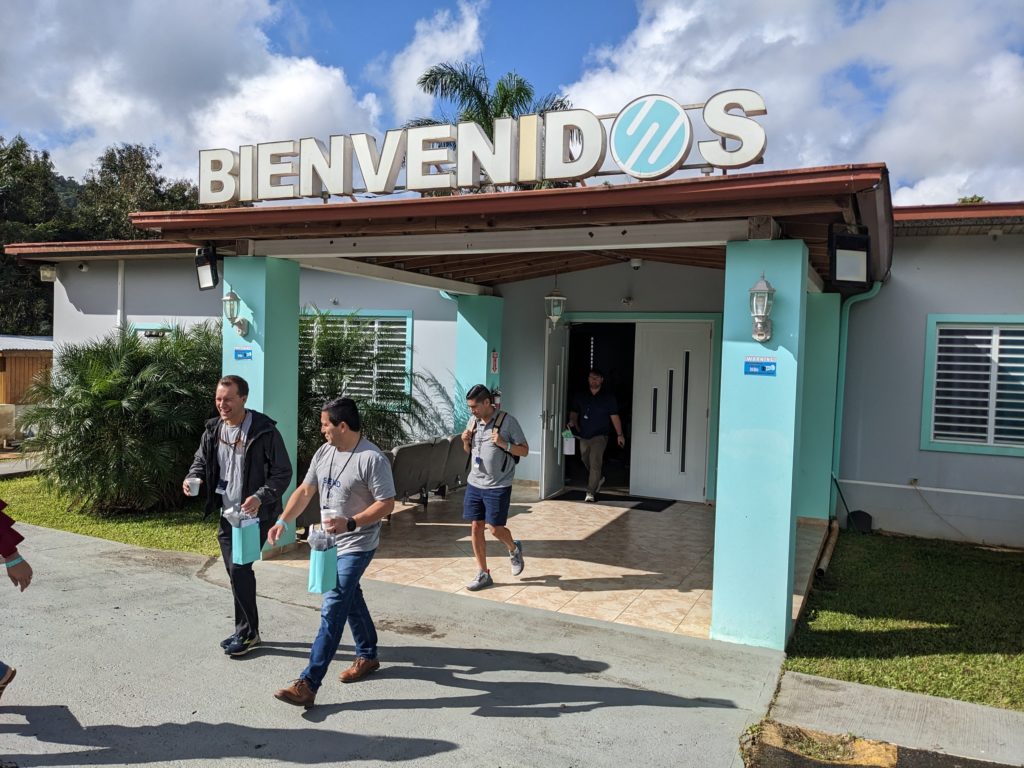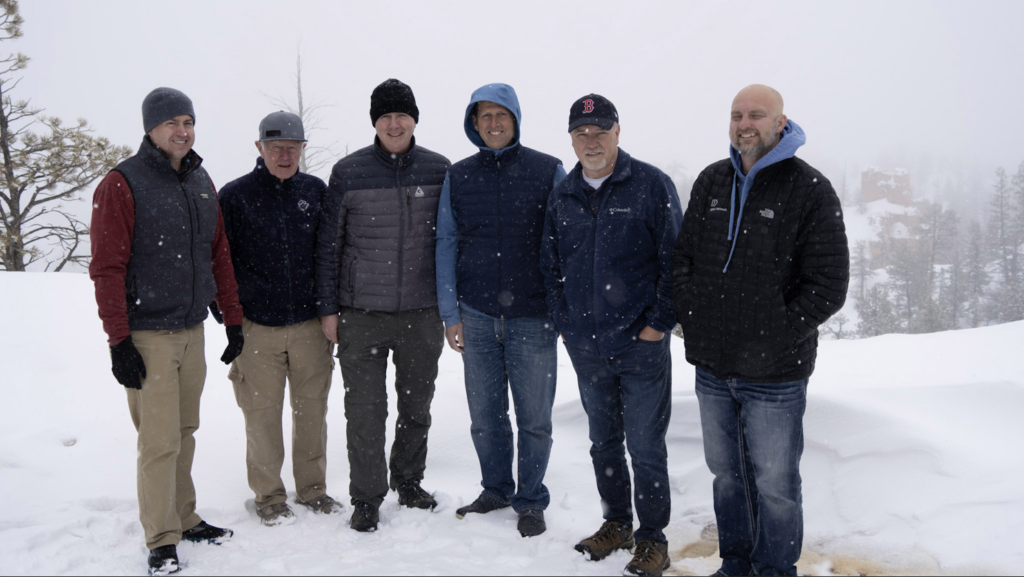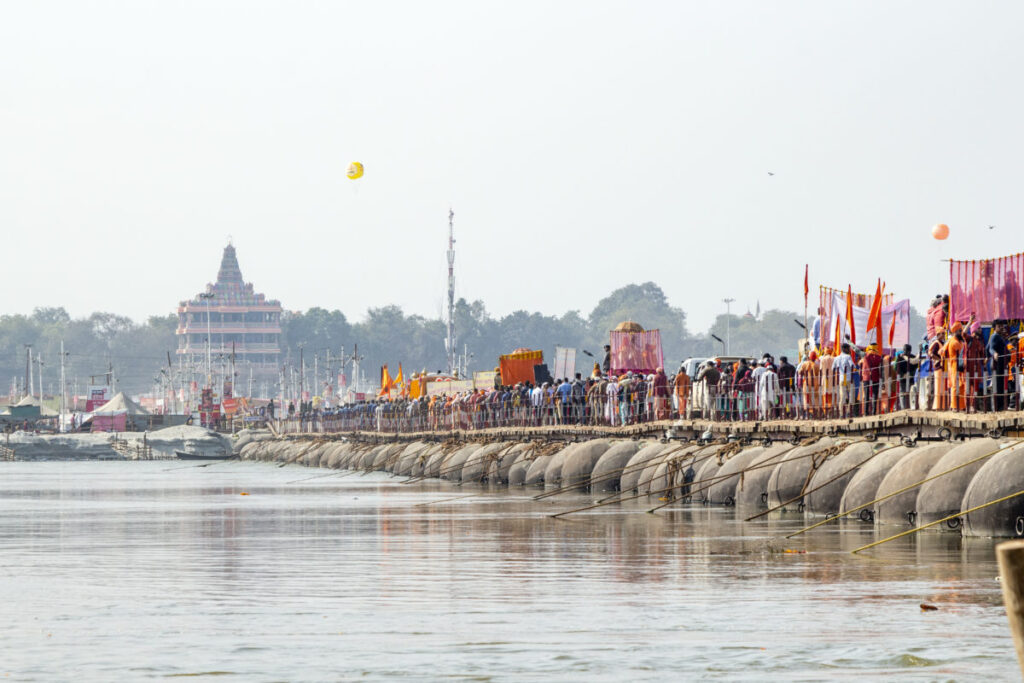Partnership is Priority in Sub-Saharan Africa
This article was originally posted on IMB.org.
Partnership is priority in Sub-Saharan Africa for African American South Carolinians.
A group of Americans stepped into a church building in Angola for a missions conference. Hardbacked wooden pews complemented the white walls. Fans whirred in the background, circulating hot air throughout the crowded sanctuary. The heat was intensified by the sheer number of people in the room.
An usher with a stick walked the aisles. As men preached, he looked for people who had fallen asleep. His task included poking tired attendees, ensuring all those present paid attention. As people looked down at their phones during the service, he came around with a bag to confiscate the devices. One young man had to show the usher his screen, proving that he was indeed reading from a Bible app.
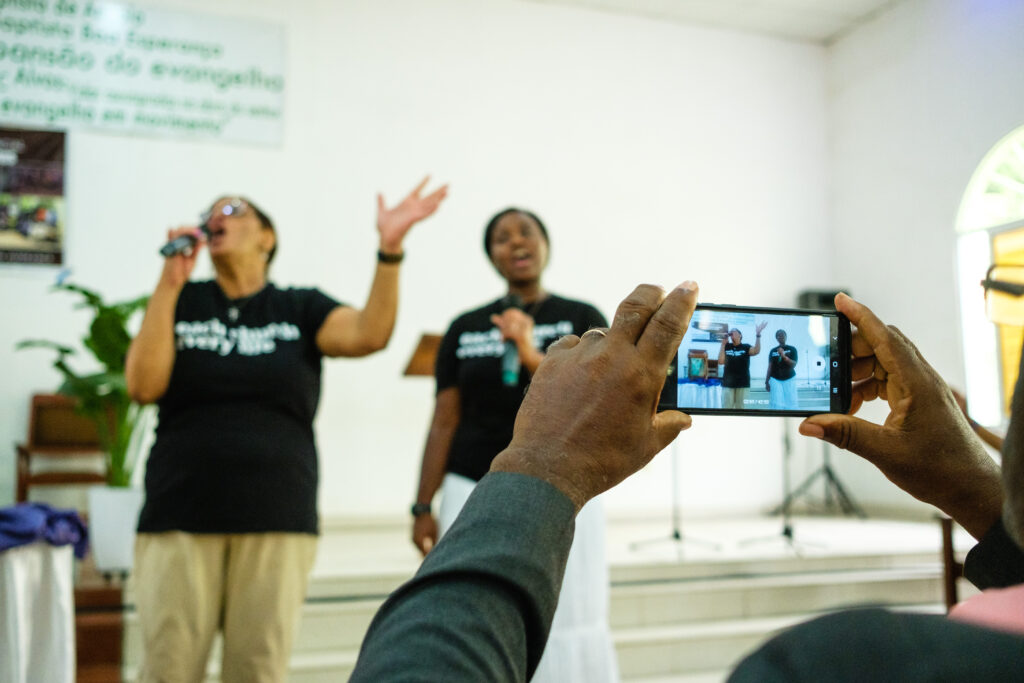
For most of the Americans, all from South Carolina African American churches, this was a completely new experience.
But when the worship began, even with an English-to-Portuguese language barrier, the cultural similarities began to peek through. Sylvia and Savannah Rogers stood up to lead worship, accompanied on the piano by Sylvia’s husband and Savannah’s dad, Andre, pastor of Concord Fellowship Baptist Church in Columbia, South Carolina. Hands were raised and claps rang throughout the building. Worship like this could be appreciated in any language.
The Americans were there because they wanted to experience the missionary task firsthand and explore how African American churches in the South Carolina Baptist Convention and Baptist conventions across Sub-Saharan Africa could foster partnerships.
Of the 125 churches in the Angola Baptist Convention, 103 of them were represented at the missions conference.
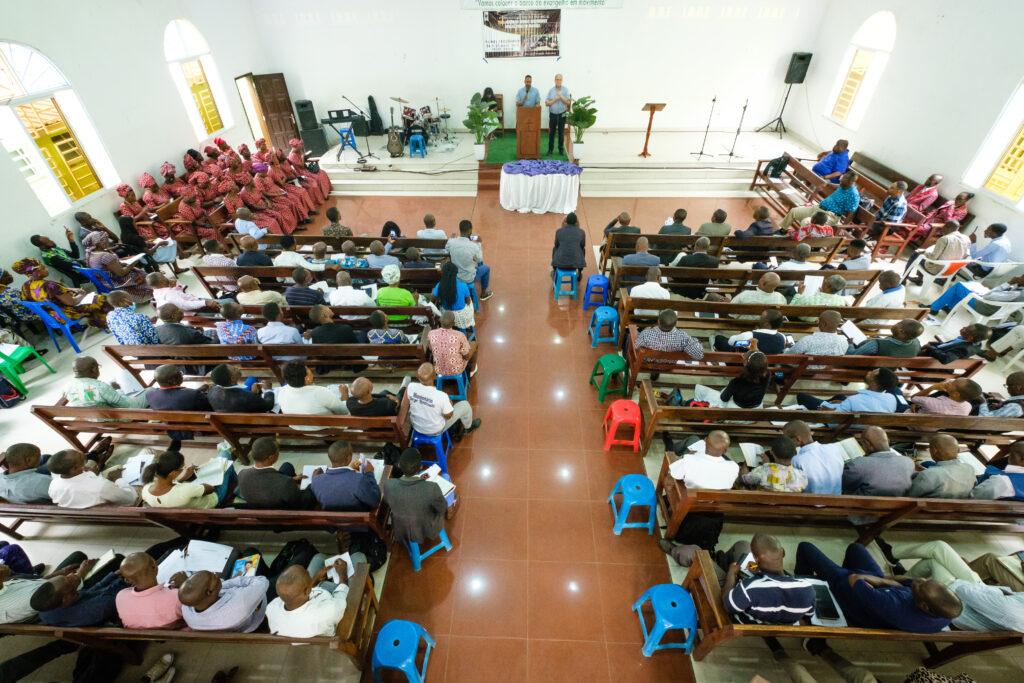
The Angola side of this trip was just one part of a vision trip to Sub-Saharan Africa on May 26-June 6 with the International Mission Board. The pastors and leaders spread out in three focus areas to get a taste of the various missions and ministry strategies. They went to Lusaka, Zambia; Luanda, Angola; and Dar Es Salaam, Tanzania.
The South Carolina Baptist Convention has been missional in forming partnerships around the world. And while they’ve done projects in African countries, there’s no current partnership in Sub-Saharan Africa. It was fitting for them to send some of their African American pastors to make the connection and form partnerships, because they naturally have fewer barriers, Steve Evans, an IMB missionary, said.
Evans welcomed the missionaries in Angola. The African American pastors contributed to the diversity of the IMB team that is already in place. Evans’ team in Angola is multicultural and multiethnic.
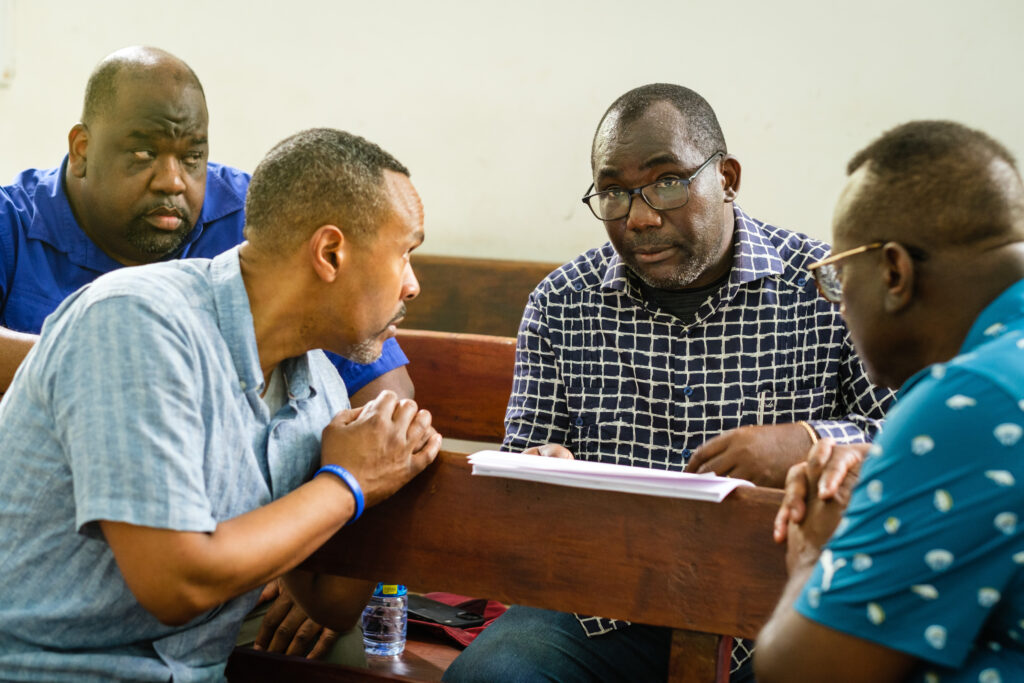
“Having African Americans on mission here in Africa, there’s a natural affinity. They’re not foreign looking, and that’s a real plus,” Evans said. “There’s an instantaneous connection, and there’s kind of this immediate brother or sisterhood.”
Having teams such as these participate in the ministry accomplishes a couple of things, Evans shared. For the churches, it creates interest and excitement. This leads to more partnership and equipping national believers to fulfil the Great Commission. This excitement was apparent on Michael Pigg’s face as he recounted how the missionary task led to leadership development on the side of the road after a service one night.
Pigg, South Carolina Baptist Convention’s Share Team leader, led the group in Angola. During the pastors’ conference, they taught the Angolans how to have a healthy ministry in their church. Afterwards, a man came up and explained that he was going to be ordained the next week. They decided to have an unofficial ordination ceremony on the side of the road. Pigg and his team said a word of encouragement to the man, prayed an ordination prayer over him, and sent him on his way with a love offering to help with his education.
Volunteer teams also fill legitimate needs. Churches with medical professionals are needed to meet needs as work at the Baptist Angolan Baptist Medical Center grows. The African church is growing, exponentially, but with that growth, there’s discipleship and leadership training that must take place. The seminary in Angola is addressing poor theology that is prevalent across the continent. IMB missionaries and short-term teams are vital for conducting trainings and teaching at the seminary.
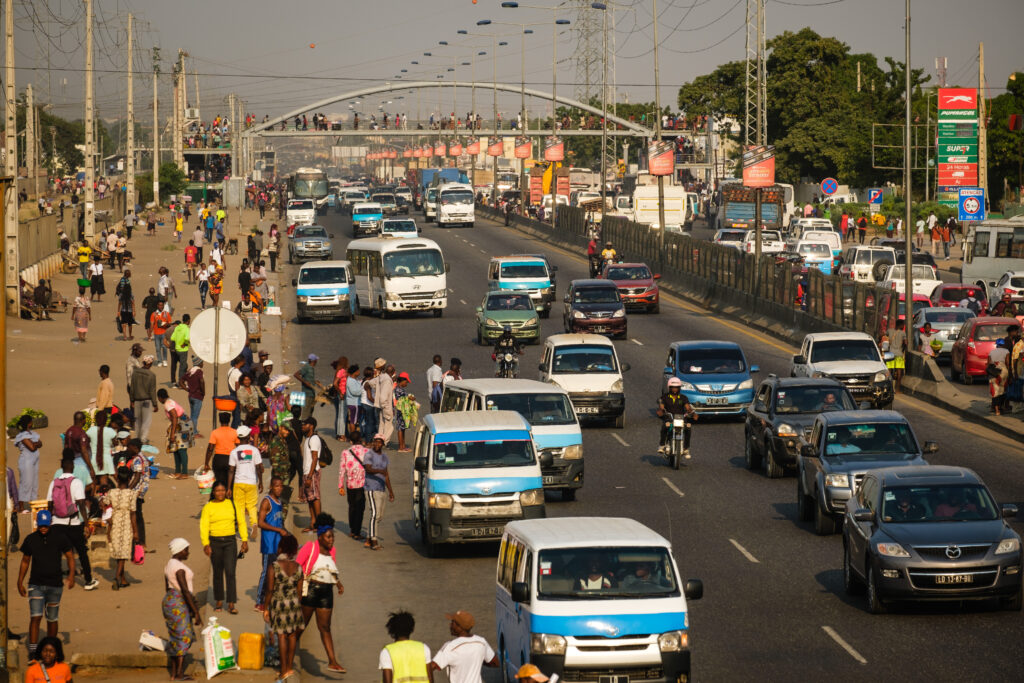
Pigg shared that one of the leaders asked him, “Do you see that this is the first step for more churches from America coming?” Pigg hopes that it is, because Angolans want to reach their people with the gospel, and they know planting more churches is the way to do that. Pigg said this trip has spurred churches in his convention to return to Angola to do just that, partner to meet needs around the country.
As volunteer teams help with the missionary task, specifically leadership training and healthy church development, they are part of the larger strategy of the Angola Baptist Convention to engage the nomadic, tribal people groups around them. They are often unengaged and unreached, and national partners are being equipped through local churches and the seminary to be a missions force in their own backyards.
Jason Thomas, IMB’s African American church mobilization strategist, shared that the participants were able to see “how we do the missionary task and how they can be a part of it.”
Thomas, who was on the Zambia trip, heard participants share examples of this during the debrief time after the trip.
During the debrief, Thomas and his team helped the trip participants connect the work they did to long-term mission strategies.
“They were able to see that the work they were doing, just on this short trip, was connecting to the larger work we do at the International Mission Board,” he said.
Thomas added, “That was kind of neat to have pastors who are from different spheres of influence get invested and involved in all those different ways to do mission.”
Pigg echoed the value of seeing these South Carolina church leaders connect with the missionary task.
He explained the purpose of the missionary task to his team like this, “Think of the first time you heard the gospel, and it became real to you. What did that feel like? What did that make you want to do? There are people just like that who have not heard. There are people who have heard and are asking the question, ‘What do I do now?’ We go to share the gospel through gospel conversations, then disciple and equip people to grow up as future leaders for Angola.”
Trip participant Andre Rogers came away inspired to partner. He sees greater needs like leadership development and training. He also was struck by the felt needs in the area.
“Brothers and sisters in South Carolina, God wants you here. God is doing a new thing here,” he said, sharing a plea with South Carolina Baptists that’s applicable to all Southern Baptists.
“I think the Lord is calling us here now. There’s a sweet spirit here. There’s a sweet willingness to cooperate here and to partner here. And I think God wants us here. He wants to do exceedingly, abundantly above all that we could ever ask or think according to the power that’s at work in us. It’s at work in Africa. Let’s be a part of it.”
Myriah Snyder writes and edits for the IMB. Max Power is a multimedia specialist for the IMB in West Africa. View the original article here.

